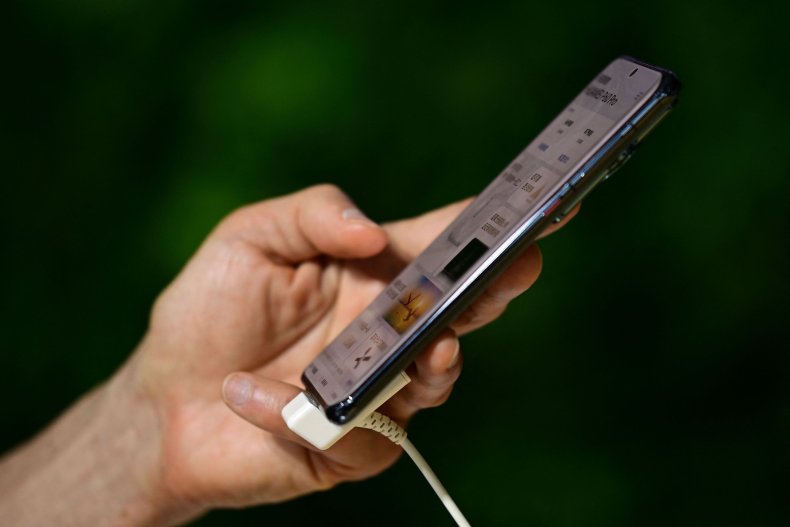China’s tech sector poses an existential threat to America’s national security. Both the Trump and Biden administrations made combating China’s tech threat a priority.
The Trump administration took a holistic approach, leveraging multiple agencies to remove our tech sector’s ties to Beijing. For example, Trump’s Federal Communications Commission (FCC) banned the use of federal funds to purchase equipment from Chinese companies with direct ties to its government. The FCC also used its foreign ownership rules to prevent Chinese wireless companies from getting licenses to operate in the U.S. The White House attempted to ban TikTok, Tencent QQ, and WeChat because of their ability to conduct espionage campaigns on our population.
This approach carried through in the Biden administration. With the help of the Secure Networks Act, Biden’s FCC was able to implement measures to cleanse our networks further of hardware designed to spy on Americans. Like the Trump administration, the Biden administration is calling to ban TikTok outright unless ByteDance—the app’s parent company—divests.
Even more aggressively, the Biden administration is leveraging the CHIPS Act to impose sanctions on chip manufacturers, preventing them from providing chips to certain Chinese device makers that have close ties with the Chinese Communist Party (CCP). Ideally, these sanctions would kneecap any attempt by mobile device makers like Huawei to develop smartphones.
But alas, Huawei was still able to unveil its Mate 60 Pro smartphone powered by a super chip.
How did that happen?
Did Huawei make its own chips? Did Chinese semiconductor companies, like SMIC, just flat-out ignore the U.S. sanctions? Is Huawei stripping outdated devices for parts? It’s unclear.
One thing that is clear is that our strategy to curb China’s efforts to dominate digital markets is falling short. Recently, a group of House Republicans called on the Biden administration to use all of its authority under the CHIPS Act to impose heavier sanctions against SMIC for its apparent violations. The administration should do so immediately.
But the government can’t do this alone. U.S. companies are going to have to step up, too.

Pedro PARDO / AFP/Getty Images
And some have. In August, Meta took down the largest Chinese influence operation on its platforms to date. The company removed more than 7,700 accounts, as well as 954 pages and 15 groups pushing Chinese propaganda. Microsoft is also responding to the threat by shutting down LinkedIn’s operations in China and is moving its AI researchers out of the country to Canada.
However, there are still some companies that continue to entrench themselves with China’s government to gain market access. Apple works fairly closely with the Chinese Communist Party. It shares the encryption codes of Chinese Apple users with its government, enabling the CCP to use iPhones to find protestors or disfavored religious groups, like Uyghurs. Apple also limited the use of AirDrop—an iPhone feature used to share images remotely—after the CCP found out protestors were using the function to anonymously share anti-government digital flyers. And it’s paid off for Apple, as the company generates a fifth of its revenue from the Chinese market.
Worse, Elon Musk has significant interests in keeping the CCP happy. Musk occasionally spouts off CCP talking points, like he did at a recent tech summit where he said that Taiwan’s independence from the People’s Republic of China is an “arbitrary” distinction. Even more terrifying is that he’s willing to use his tech to engage in foreign wars, like he did with Starlink in Ukraine. What’s stopping him from using Starlink against us, especially if its operations here conflict with his dealings on China’s mainland?
Amazon, too, has made deals with the CCP’s propaganda arm to promote President Xi Jinping‘s speeches and writings. Amazon even disabled customer reviews of Xi’s writings. Why? Because the company wants to break into that market. Worse, Amazon continues to sell routers with a potential backdoor for the CCP to spy on consumers in the U.S.
These are all bad enough, but Big Tech companies continue to manufacture their devices, develop their AI systems, and increase their revenue in China. Given China’s blatant disregard for our intellectual property rights, there’s nothing stopping Chinese companies from outright stealing our tech to increase its digital footprint if companies like Apple, Tesla, and Amazon keep operating there.
Congress has asked every one of these companies’ CEOs to aid in the development of our AI strategy, and each will have a key role in that regard. This is all the more reason to call their ongoing relationships with the Chinese government into question as it flies in the face of policies intended to ensure our national security.
When our own companies don’t care how their dealings impact our national security, it’s no wonder China or companies supplying China’s tech sector do not take our sanctions seriously.
In this digital arms race, it’s time for at least American companies to pick a side by divesting from China.
Joel Thayer is president of the Digital Progress Institute and an attorney based in Washington, D.C. The Digital Progress Institute is a nonprofit seeking to bridge the policy divide between telecom and tech through bipartisan consensus.
The views expressed in this article are the writer’s own.

